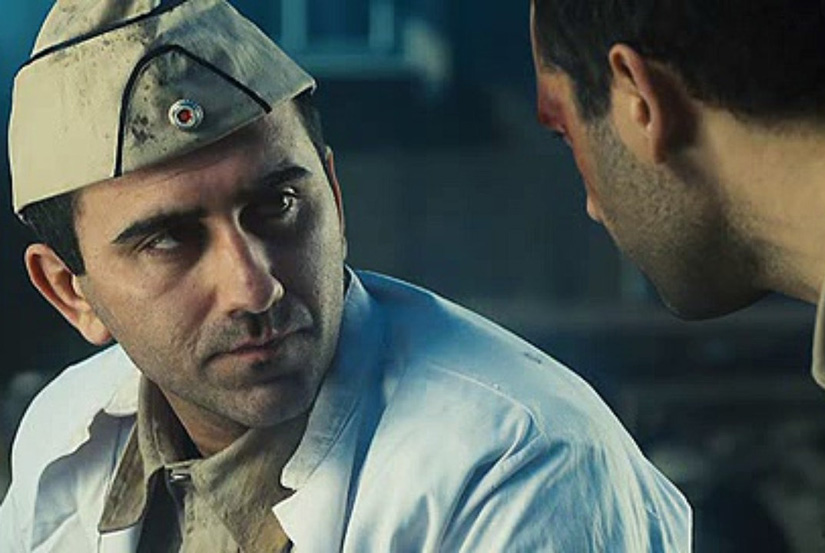
- Film
Foreign Film Submissions, 2015: Crimean (Turkey)
Part of the Hollywood Foreign Press Association’s mission is to foster greater understanding through world cinema. This year 72 Foreign Language films were submitted for Golden Globes consideration. Here is an overview of one of them.
World War II had many secondary fronts, which are still not widely known. One such case is the fate of the ethnic Tatars who in 1944 were forcefully deported by the Soviet authorities from their native Crimean Peninsula to remote areas of the Soviet Union under false pretext of mass collaboration with Nazi occupiers of Crimea. During the deportation many died.
The Turkish film Cirimli is probably the first attempt by outside filmmakers to touch upon the fate of Crimean Tatars, who in Turkey are being called Crimean Turks. (Before being taken by Russian Empire Crimea belonged to Ottoman Empire). The film tells the story of one Crimean Tatar, Sadik Turan, who is drafted into the Soviet Red Army and heroically fights the Nazis before he is taken prisoner by the Germans.
Sadik is kept in the prisoners of war camp where he witnesses the suffering of the captured soldiers including his fellow Crimeans. Because of his knowledge of German he is given some easier tasks in the camp as a prisoner liaison. When the Germans decide to create a Muslim unit in the German army, Sadik joins believing that he will fight for the liberation of his beloved homeland from the Soviets who made his people suffer so much. Soon, however, he realizes that the Nazis are just using him and his comrades for their own purposes. While stationed in occupied Poland he meets a beautiful Polish resistance fighter, Marta. This encounter will prove fateful for Sadik.
The director, Burak Cem Arliel, based his film on the novel Horrible Years by the Turkish writer Cengiz Dagci, published in 1956. The writer who passed away in 2011 based his whole body of work on the fate of Crimean Tatars and the suffering of this nation under the Soviet communist regime, which tried to rob them of their culture and religion. Ariel says about his film: “The plot with its many twist and turns, was very much different from traditional war movies. First and foremost it was very important to capture the emotions reflected by the actors and to establish a certain authenticity of the characters. And the crew, the soul of it all, had to have enough fate in the script and the movie to be able to work with enthusiasm and excitement despite the harsh weather, fatigue, the lack of sleep and other complications. Crimean is the story of a people who face danger in order to live free. They never give up even in their darkest moments, always getting back up on their feet, never forgetting who they are.”
Serge Rakhlin

